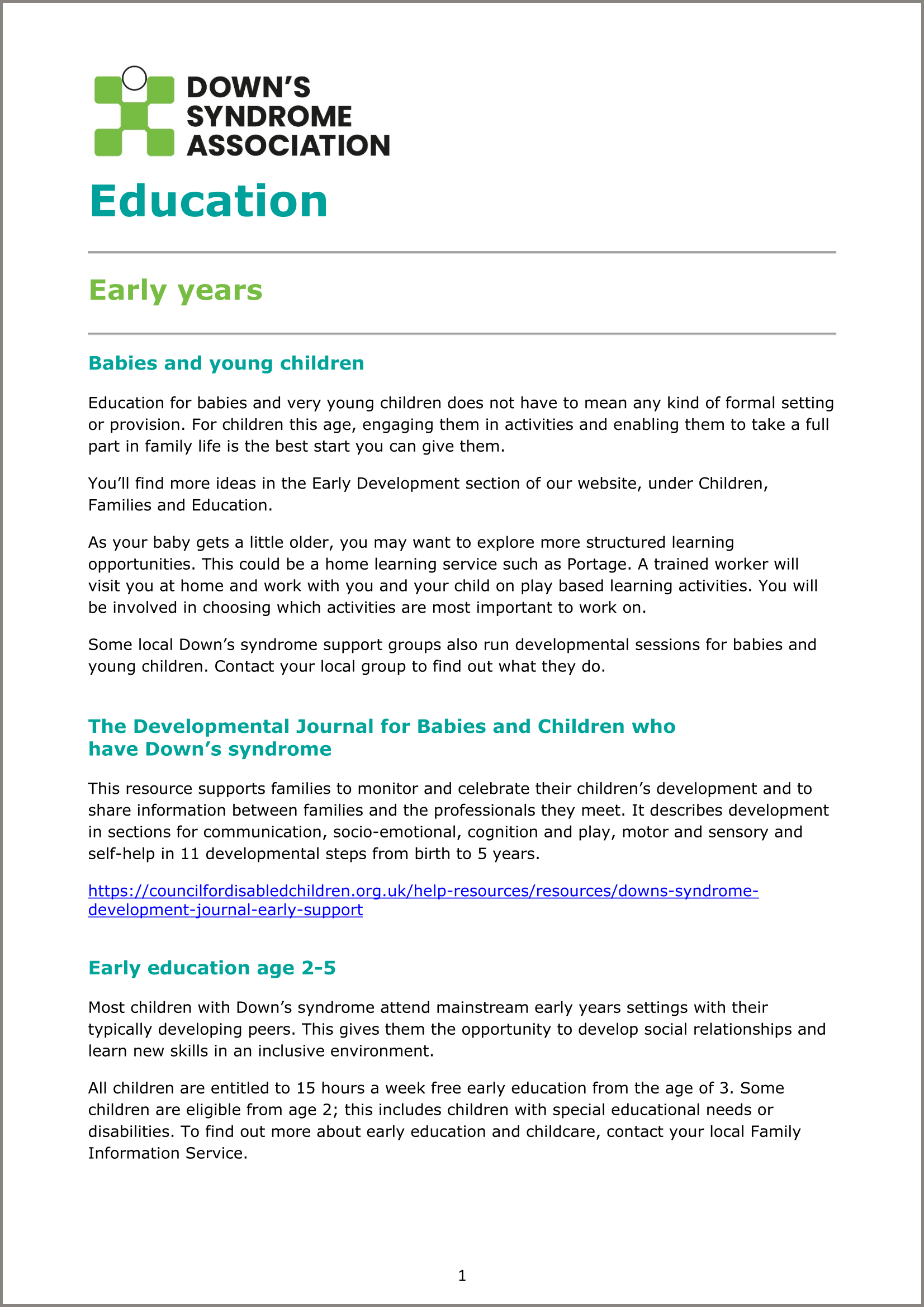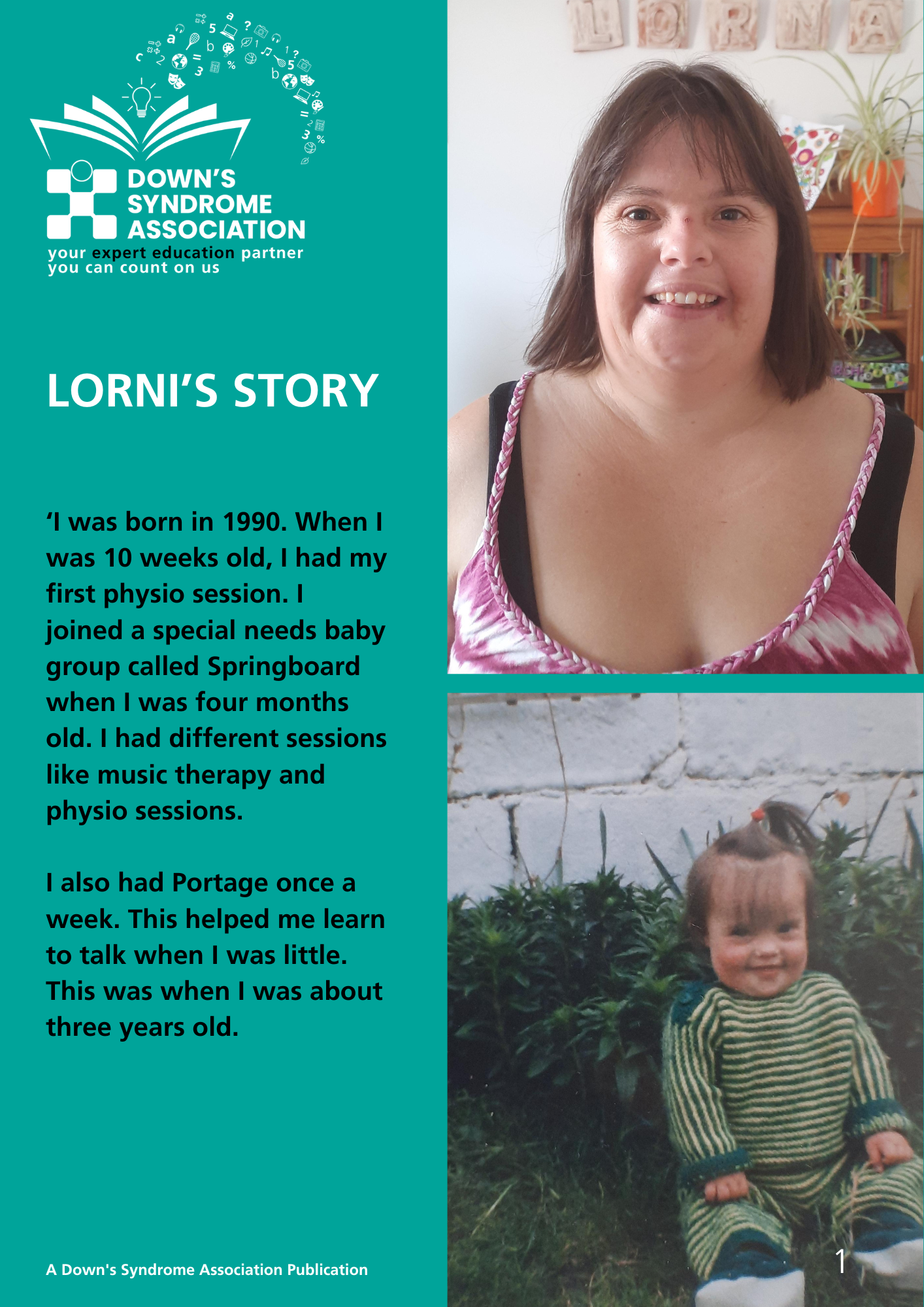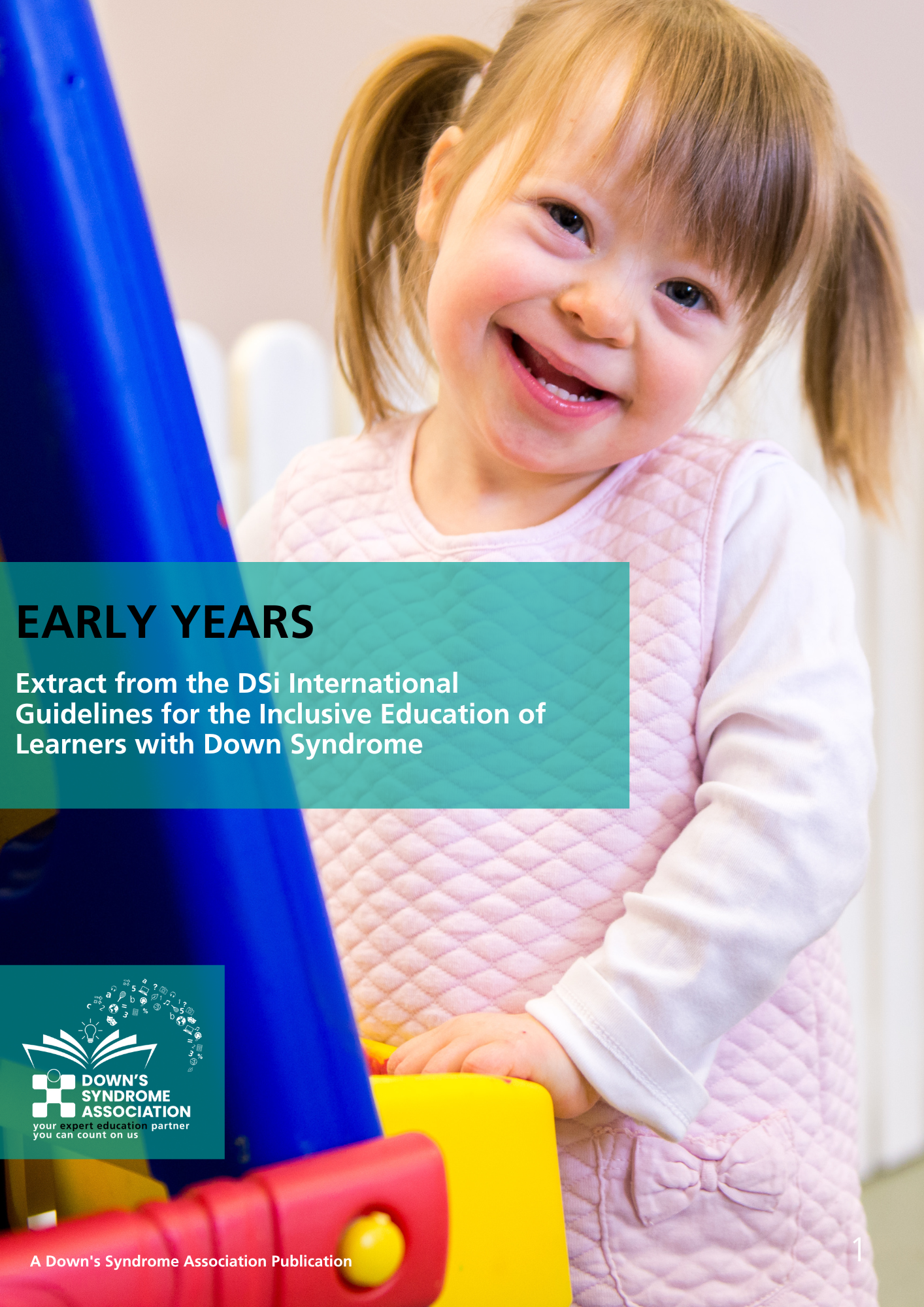Early years education
Planting the seeds, starting to grow
Education for babies and very young children does not have to mean any kind of formal setting or provision. For children this age, engaging them in activities and enabling them to take a full part in family life is the best start you can give them. Your child will develop through enjoyable opportunities for interacting, moving and playing in their first years of life.
As your baby gets a little older, you may want to explore more structured learning opportunities or opportunities to socialise with other toddlers and pre-school aged children. Most children with Down’s syndrome attend mainstream early years settings with their typically developing peers. This gives them the opportunity to develop social relationships and learn new skills in an inclusive environment.
There is no hard and fast rule about how much extra help your child will need at nursery or pre-school. Some children who have Down’s syndrome manage well within what the setting generally provides; others may need additional support. The setting should work very closely with parents/carers, as they know their child best. It will also be helpful for the setting to get advice from other professionals such as a speech and language therapist or educational psychologist. The local authority may also have early years advisory staff for special educational needs, for example an early years inclusion officer (INCO) or area SENCO (special needs co-ordinator) covering a cluster of early years settings.
Early intervention
All families should receive early intervention services to help guide their child’s development. Although children’s needs vary, families should expect to engage with speech and language therapy, pre-school advisory and physical therapy (physiotherapy and/or occupational therapy) services during their children’s early years.
The DSA is able to offer subsidised speech and language therapy assessments to members of the DSA. Click here to find more information about the service.
Early Years Foundation Stage (EYFS)
The early years foundation stage (EYFS) covers the education of children aged 0-5. It is a statutory framework setting out standards for the learning, development and care of all children 0-5 years old (upto the end of Reception year in school). The guidance must be followed by OFSTED registered childminders, nurseries and pre-schools, to ensure that children learn well, are healthy and are kept safe.
The framework states that Early Years providers must have arrangements in place to support children with SEN or disabilities. There are universal progress checks at age 2 and at the end of Reception Year. Providers have a duty to identify and meet the special educational needs of children with Special Needs and Disabilities.
All schools and early years settings (preschools / nurseries) must provide additional help for children who need it. It is particularly important that early years settings do not delay in making provision for children with SEND. The process for giving additional help is set out in the SEND Code of Practice. Chapter 5 sets out the actions early years providers should take to meet their duties in relation to identifying and supporting all children with special educational needs and disabilities.
If your child needs more help than the setting can provide from their own resources, you should consider asking for a statutory Education, Health and Care Assessment which may lead to an Education Health and Care Plan (in England). If you haven’t done so before, we suggest you start the process at least a year before your child starts school.
If you have any queries about early development or Early Years education, please do not hesitate to contact our Helpline Advisors on 0333 1212300 (10am-4pm) or email info@downs-syndrome.org.uk. We would be delighted to help you.
The DSA has produced several early years resources and also provides training on supporting early development.
We detail some of the resources you might find helpful below:
DSA resources



